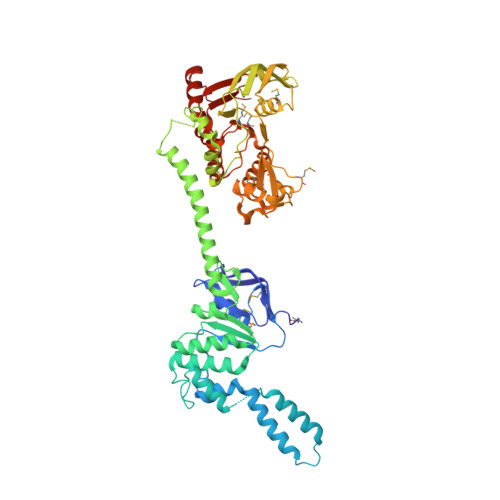The ABC-F protein EttA gates ribosome entry into the translation elongation cycle.
Boel, G., Smith, P.C., Ning, W., Englander, M.T., Chen, B., Hashem, Y., Testa, A.J., Fischer, J.J., Wieden, H.J., Frank, J., Gonzalez, R.L., Hunt, J.F.(2014) Nat Struct Mol Biol 21: 143-151
- PubMed: 24389466
- DOI: https://doi.org/10.1038/nsmb.2740
- Primary Citation of Related Structures:
4FIN - PubMed Abstract:
ABC-F proteins have evaded functional characterization even though they compose one of the most widely distributed branches of the ATP-binding cassette (ABC) superfamily. Herein, we demonstrate that YjjK, the most prevalent eubacterial ABC-F protein, gates ribosome entry into the translation elongation cycle through a nucleotide-dependent interaction sensitive to ATP/ADP ratio. Accordingly, we rename this protein energy-dependent translational throttle A (EttA). We determined the crystal structure of Escherichia coli EttA and used it to design mutants for biochemical studies including enzymological assays of the initial steps of protein synthesis. These studies suggest that EttA may regulate protein synthesis in energy-depleted cells, which have a low ATP/ADP ratio. Consistently with this inference, EttA-deleted cells exhibit a severe fitness defect in long-term stationary phase. These studies demonstrate that an ABC-F protein regulates protein synthesis via a new mechanism sensitive to cellular energy status.
Organizational Affiliation:
1] Department of Biological Sciences, Columbia University, New York, New York, USA. [2] Northeast Structural Genomics Consortium, Columbia University, New York, New York, USA.



















